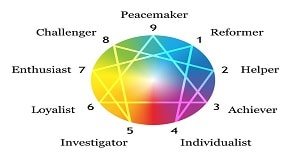How Bullying Leads to Depression

Are you tired of feeling down because of bullying? Do you wonder why it’s affecting your mental health? Well, look no further. This piece will explore the link between bullying and depression.
You’ll discover how being bullied as a child can lead to anxiety and depression in adulthood. We’ll also delve into the social, emotional, and physical impacts of bullying.
Don’t fret; assistance is available. Find out how seeking help from a mental health professional can make a difference. Remember, addressing adolescent depression requires a collaborative effort.
The Connection Between Bullying and Depression
You may be wondering how bullying can lead to depression. Allow me to explain the correlation between bullying and depression.
Bullying victimization profoundly impacts an individual’s mental well-being, increasing their vulnerability to developing depression. Research indicates that those who experience bullying are more prone to experiencing depression compared to those who have not been subjected to bullying. The effects of bullying extend beyond physical harm; they deeply impact one’s emotional state.
Persistent exposure to bullying can evoke emotions of worthlessness, hopelessness, and isolation. The continuous torment and humiliation can erode an individual’s self-esteem, leaving them susceptible to depression. The negativity and stress caused by bullying can disrupt normal brain chemistry, resulting in changes in mood and behavior. The constant fear and anxiety associated with being a bullying victim can also contribute to the emergence of depressive symptoms.
It is essential to acknowledge that depression among bullying victims is a significant concern that necessitates attention and support. If you or someone you know is experiencing bullying, it is crucial to seek assistance from trusted adults, friends, or mental health professionals. Remember, anyone undeserves mistreatment, and resources are available to help overcome the consequences of bullying and prevent its association with depression.
Do children who experience bullying become anxious and depressed adults
Children who experience bullying may develop anxiety and depression that persist into adulthood. The impact of bullying on a person’s mental health can be long-lasting. It is important to understand the consequences of bullying and how it can affect individuals throughout their lives.
Here are some important points to consider:
- Bullying can lead to the development of anxiety disorders. Victims often experience constant fear and humiliation, resulting in excessive worry and fear in various situations.
- Depression is a common outcome of bullying. The feelings of sadness, hopelessness, and worthlessness that arise from being bullied can continue into adulthood.
- Bullying-related mental health issues can significantly impact a person’s overall well-being, affecting their relationships, work, and overall quality of life.
- Addressing bullying and providing support to those who have experienced it is crucial. Early intervention and support can help minimize the long-term effects on mental health.
- Creating a safe and inclusive environment is essential in preventing bullying and promoting positive mental health for everyone involved.
Understanding the connection between bullying and mental health is vital in addressing the long-term consequences of this harmful behavior. By recognizing its impact, we can work towards creating a society where individuals feel safe, supported, and valued.
The Social, Emotional, And Physical Effects of Bullying
The social, emotional, and physical consequences of bullying can have long-lasting effects on your well-being and overall quality of life. Bullying behavior, especially during adolescence, can harm your mental health. Research has shown a clear link between bullying and depression. Being a victim of bullying can lead to feelings of sadness, hopelessness, and low self-esteem. The constant harassment and humiliation can erode your self-worth, making it challenging to form positive relationships and participate in social activities. This isolation can further contribute to feelings of depression and anxiety.
Moreover, it is crucial to recognize the physical impacts of bullying. Bullying can result in physical injuries, such as bruises, cuts, and broken bones. These physical scars can be a constant reminder of the trauma you have experienced, worsening your emotional distress. Additionally, the stress and fear associated with bullying can harm your overall health, leading to headaches, stomachaches, and difficulties sleeping.
It is important to acknowledge the significant influence that bullying can have on your mental health. Seeking support from trusted adults, friends, or mental health professionals can assist you in navigating the emotional and psychological effects of bullying. Remember, you are not alone, and resources are available to help you heal and overcome the negative effects of bullying.
Getting Help From a Mental Health Professional
Getting assistance from a mental health professional can be advantageous for navigating the emotional and psychological consequences of bullying. When you are enduring the devastating effects of bullying, reaching out to a mental health professional who can offer the necessary support and guidance is vital. Here are some reasons why seeking help from a mental health professional is vital:
- Expertise: Mental health professionals possess the knowledge and expertise to comprehend the intricate nature of bullying and its impact on your mental well-being.
- Validation: Conversing with a professional can help validate your experiences and emotions, providing a sense of being heard and understood.
- Coping strategies: A mental health professional can equip you with effective coping mechanisms to manage the emotional turmoil caused by bullying.
- Identifying underlying issues: They can assist you in identifying any underlying mental health concerns, such as depression or anxiety, that may have originated from bullying.
- Support system: Collaborating with a mental health professional can provide you with a robust support system, aiding in developing resilience and establishing healthy coping mechanisms.
Tackling Adolescent Depression Is a Team Effort
Tackling adolescent depression requires a collaborative effort from parents, educators, and mental health professionals. When it comes to addressing the issue of adolescent depression, everyone has a role to play.
Parents, as the primary caregivers, need to be aware of the signs and symptoms of depression in their children. By staying involved and engaged, parents can provide the necessary support and seek professional help.
Educators also play a vital part in identifying and addressing adolescent depression. They interact with students daily and can often detect changes in behavior or mood. By creating a secure and supportive school environment, educators can help prevent bullying, which is a significant contributing factor to depression in adolescents.
Mental health professionals are crucial in the treatment and management of adolescent depression. They have the expertise to diagnose the condition accurately and provide the appropriate therapy or medication. By working closely with parents and educators, mental health professionals can develop comprehensive plans to address the individual needs of each adolescent.
A collaborative effort between parents, educators, and mental health professionals is essential for preventing and addressing adolescent depression. Working together can create a supportive and nurturing environment that promotes positive mental health and well-being for all adolescents.
Frequently Asked Questions
How Does Bullying Affect a Person’s Self-Esteem?
Bullying can significantly impact your self-esteem. The constant criticism, humiliation, and exclusion can lead to doubts about your worth and abilities. It is crucial to address bullying to protect your mental well-being.
Exploring the effects of bullying on one’s self-esteem is of utmost importance. The negative consequences can be severe, with individuals often questioning their value and capabilities. This issue should not be taken lightly, as it can profoundly impact one’s overall sense of self-worth.
It is essential to acknowledge the detrimental effects that bullying can have on an individual’s self-esteem. In addition to the criticism and humiliation, the feeling of exclusion can further exacerbate these doubts. Not only does it cause emotional distress, but it also creates a sense of isolation and alienation.
Considering the significance of addressing bullying, it becomes clear that the impact on one’s mental well-being should not be underestimated. It is not only a matter of protecting oneself from emotional harm but also a means of nurturing a healthy and positive self-image.
To conclude, bullying has far-reaching effects on an individual’s self-esteem. It is not only a matter of facing criticism and humiliation but also of feeling excluded and doubting one’s worth. It is crucial to address this issue to safeguard one’s mental well-being and promote a positive sense of self.
Can Bullying Lead to Other Mental Health Issues Besides Depression, Such as Anxiety or Ptsd?
Bullying can lead to various mental health issues, including anxiety and PTSD. Being constantly targeted and humiliated can result in long-lasting emotional trauma that significantly impacts their overall well-being.
Experiencing relentless bullying can harm one’s mental health, such as extreme unease and worry. It can also contribute to the development of post-traumatic stress disorder (PTSD), a condition characterized by recurring distressing memories, nightmares, and flashbacks related to the traumatic experiences endured during bullying.
It is important to acknowledge that bullying affects a person’s emotional state and can lead to a range of other mental health conditions. For instance, individuals who have been bullied may experience depression, low self-esteem, and social withdrawal.
Furthermore, the consequences of bullying extend beyond the immediate emotional distress. Victims may also face difficulties in forming and maintaining healthy relationships and experiencing challenges in academic or professional settings. The impact of bullying is far-reaching and can have long-lasting effects on an individual’s overall quality of life.
Are There Specific Factors That Increase the Risk of a Child Becoming Depressed as a Result of Bullying?
Certain factors heighten the chances of your child experiencing depression due to bullying. These factors can encompass the length and intensity of the bullying, absence of support, and previous history of mental health problems. In this write-up, we will explore these aspects in detail, shedding light on their significance in contributing to the risk of depression.
To begin with, the duration and severity of the bullying can play a pivotal role in determining the likelihood of depression. Research has shown that prolonged and intense bullying can profoundly impact a child’s mental well-being. This is particularly true when bullying takes various forms, such as verbal abuse, physical aggression, or cyberbullying. In light of these findings, it becomes evident that the longer and more severe the bullying, the higher the risk of depression.
Another crucial factor is the lack of support that a child receives during such distressing times. It is important to note that when children don’t have a strong support system, they may feel isolated and helpless in dealing with the bullying. This lack of support can exacerbate feelings of sadness, loneliness, and hopelessness, ultimately leading to depression. Therefore, it is equally important for parents, teachers, and peers to provide the necessary support and guidance to help the child cope with the bullying.
Furthermore, a child’s previous history of mental health issues can significantly increase their vulnerability to depression. If a child has already experienced mental health challenges, such as anxiety or low self-esteem, they may be more susceptible to the negative effects of bullying. Not only does bullying add to their existing emotional struggles, but it can also trigger a relapse or intensify their symptoms. Parents and caregivers must be aware of their child’s mental health history and take proactive measures to address any underlying issues.
How Can Parents and Teachers Recognize the Signs of Depression in a Child Who Is Being Bullied?
Parents and teachers can effectively identify the signs of depression in a child experiencing bullying by paying close attention to alterations in their behavior. This includes observing indications such as withdrawal, sadness, difficulties with sleep, and diminished interest in activities they previously enjoyed. It is critical to be perceptive to these changes as they can provide valuable insights into the child’s emotional well-being. It is equally important to note that the impact of bullying on a child’s mental health should not be underestimated or overlooked. In addition, parents and teachers must take into account other factors that may contribute to their depression. By doing so, they can better comprehend the unique circumstances that the child is experiencing and provide the necessary support and intervention.
Are There Any Long-Term Effects of Bullying on a Person’s Mental Health?
There are indeed lasting consequences of bullying on your mental well-being. It can result in depression and other psychological ailments. Acknowledging and addressing these impacts is essential to safeguard your overall health.
In this discussion, it is crucial to shed light on the long-term repercussions of bullying on an individual’s mental health. Not only does it contribute to feelings of sadness and hopelessness, but it can also lead to the development of various mental health disorders. This matter should not be taken lightly or ignored, as it can have severe consequences.
To begin with, the effects of bullying on mental health are far-reaching and should not be underestimated. It can cause a deep sense of despair and emotional turmoil, often resulting in long-term depressive symptoms. Moreover, individuals who have experienced bullying may also be prone to anxiety disorders, such as generalized or social anxiety.
Not to mention, the impact of bullying on mental well-being is equally important for all age groups. It affects children, adolescents, and adults alike. The psychological toll it takes can be uniquely distressing and may significantly hinder an individual’s daily functioning and overall quality of life.
In addition to depression and anxiety, bullying can lead to other mental health issues. For instance, victims may develop low self-esteem and a negative self-image, making it difficult to form healthy relationships and engage in social activities. Likewise, they may experience difficulties trusting others and become overly cautious or even paranoid in their interactions with others.
Furthermore, the consequences of bullying on mental health should not be overlooked. Recognizing that the effects can be long-lasting and may persist into adulthood if not addressed appropriately is crucial. This means that individuals who have been bullied may struggle with their mental well-being for years to come if they do not seek help or support.
Moreover, it is important to note that the impact of bullying on mental health is not limited to the individual alone. It can ripple effects on their family, friends, and even the community. The emotional distress caused by bullying can create a ripple effect, affecting relationships and overall social dynamics.
Therefore, it is crucial to understand and acknowledge the long-term effects of bullying on mental health. Firstly, it can lead to depression, anxiety, and other psychological disorders. Secondly, it can affect individuals of all ages, from children to adults. Thirdly, it can result in low self-esteem, difficulty forming relationships, and a negative self-image.
Conclusion
To sum up, it’s evident that bullying significantly impacts individuals, leading to depression and other mental health issues.
It is crucial to acknowledge the link between bullying and depression and the long-term consequences it can have on individuals.
Seeking assistance from a mental health professional is vital in addressing and managing the emotional and physical effects of bullying.
Remember, addressing adolescent depression requires a collaborative effort, so reach out for support and work collectively to create a safe and supportive environment for everyone.






